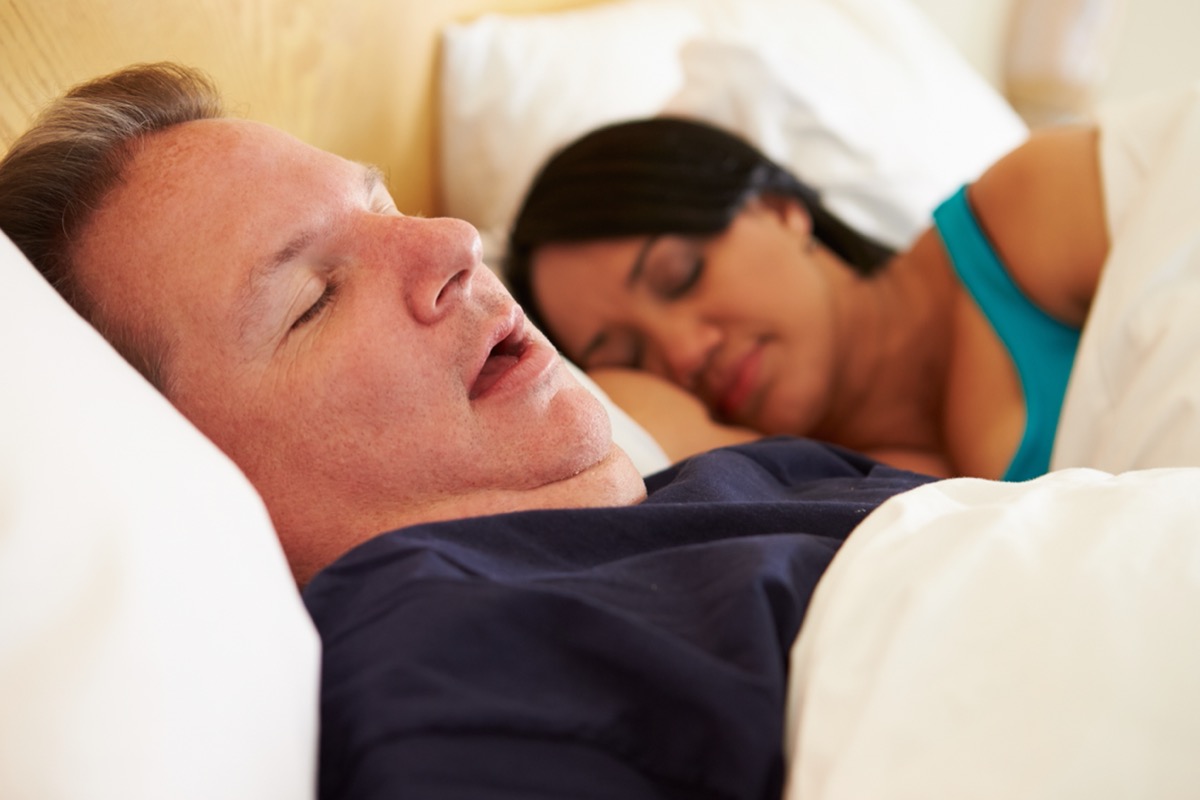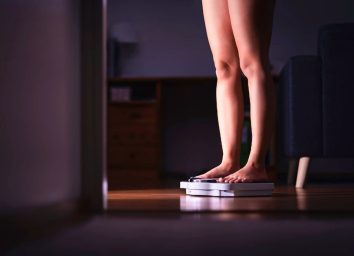Sleeping This Much Could Increase Your Risk of Obesity, Study Finds

For many people, tossing and turning night after night simply feels par for the course. Whether it’s stress, a TV show you can’t stop bingeing, or a late cup of coffee that’s keeping you up, getting too little sleep can make you feel exhausted, unproductive, and physically unwell the following day. Unfortunately, sleeping for too long can have similar effects as well.
However, that’s not the only effect getting the wrong amount of sleep may have—a new study suggests that it may also contribute to your risk of obesity. Read on to discover the amount of sleep that may predict your risk of becoming obese, according to research. And if you want to shed a few pounds, check out these 15 Underrated Weight Loss Tips That Actually Work.
Sleeping too little may increase your risk of obesity.

If you’ve noticed your weight creeping upward or have a family history of obesity, you may want to get a little more shuteye at night.
A recent study published in the Journal of the American Academy of Nutrition and Dietetics found that, among a group of 19,650 individuals studied, those who slept for seven hours or less at night consumed larger amounts of carbohydrates, fats, caffeine, and excess sugar in the form of snacks than those who had longer-duration sleep.
“Not only are we not sleeping when we stay up late, but we’re doing all these obesity-related behaviors: lack of physical activity, increased screen time, food choices that we’re consuming as snacks and not as meals. So it creates this bigger impact of meeting or not meeting sleep recommendations,” explained Christopher A. Taylor, PhD, RDN, LD, FAND, a professor of medical dietetics and family medicine at The Ohio State University and the study’s lead author, in a statement. “We know lack of sleep is linked to obesity from a broader scale, but it’s all these little behaviors that are anchored around how that happens,” Taylor added.
Related: Sign up for our newsletter for the latest health and fitness news!
It may even increase your risk of early death.

It’s not just your obesity risk that your sleeping habits may affect. A study conducted by researchers at the University of Warwick found that individuals who reduced the amount of sleep they got from seven hours to five hours a night had a 1.7 times higher risk of all-cause mortality and double the risk of death from cardiovascular health problems than those who slept for longer.
Related: This Is the Best Workout for Better Sleep, New Study Finds
Sleeping too much may also have a serious effect on your weight.

It’s not just short-duration sleep that can affect your weight, however. According to a study published in the journal Sleep, among a group of 276 adults between 21 and 64, those who slept for between nine and ten hours at night had a 21% higher risk of obesity.
There’s a sweet spot for sleep duration.

While children typically need longer periods of rest each day, adults generally benefit from sleeping for a specific number of hours at night.
According to the Centers for Disease Control and Prevention (CDC), adults between 18 and 60 should try to get upwards of seven hours of sleep at night, individuals between 61 and 64 should try to get between seven and nine hours of sleep, and folks who are 65 and older should get between seven and eight hours of sleep each night.
If you want to improve your sleep, check out these 7 Diet Changes You Can Make Now to Sleep Better Tonight.








